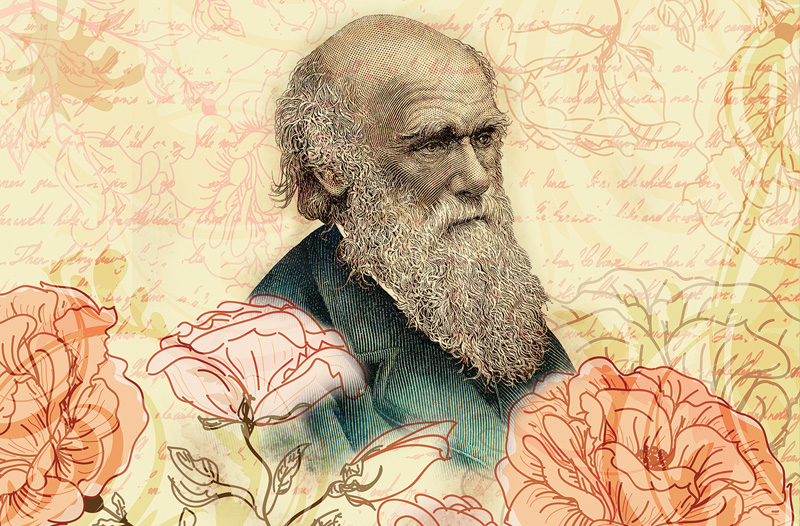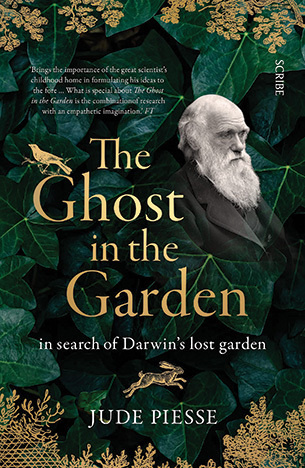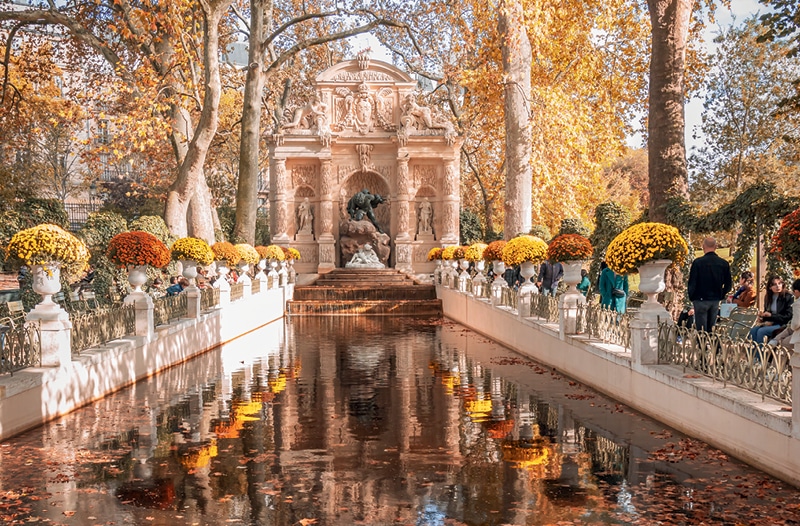
Discovering Darwin’s Garden

Enlightening reading about gardens is not about how deeply to plant a seed or the recommended exposure to sunlight but, rather, about why we garden, the roots we propagate spanning generations, the clarity of thought achieved under a cloudless sky, or how nature may connect a frond to a finger.
In The Ghost in the Garden: In Search of Darwin’s Lost Garden, author Jude Piesse tells the story of a family, a community, and a famous scientist through what remains of a garden plot in Shrewsbury, England.
Think of a garden as an intellectual concept, a timeless liminal state where one may embed an intergenerational mark, “…a deeply resonant site that holds a range of dialectical ideas in a state of tension—community and competition, but also myth versus modernity, nature versus culture, youth and age, private space and public history, religious meaning and scientific endeavor, progress, and degeneration—the list goes on,” writes Piesse.
The Ghost in the Garden: In Search of Darwin’s Lost Garden
By Jude Piesse
Scribe Publications
$28
I’m not as high-minded as Piesse when I’m on hands and knees tugging at a recalcitrant root in my rose bed on a hot, humid Mississippi afternoon in August. I’m wet with perspiration. Mosquitoes dive-bomb for my ankles. I’ve likely muttered my frustration with adult language. “Myth versus modernity” is not what I’m thinking at that moment. But I am cognizant of the visceral connection to others who have tilled or trod upon the same acre and a half I now cultivate.
Charles Darwin was born in 1809 at The Mount in Shrewsbury, a large estate on the River Severn, 170 miles northeast of London. On the estate, owned by his father, Robert Darwin, a large seven-acre garden was created, and it is this garden that Charles Darwin grew up in and later experimented in as an early basis for his scientific and evolutionary studies. Parts biography, memoir, nature writing, and environmental commentary, The Ghost in the Garden is a reflection upon this garden, its history, and its inhabitants.
Piesse holds a Ph.D. in English literature from the University of Exeter. Though she grew up in Shropshire, only six miles from Shrewsbury, she was not aware of Darwin’s Garden until she moved within walking distance with her spouse and two young children to begin her first lectureship. Much of the warmth and wonder of the book stems from Piesse’s strolls through the garden with her young daughters. Another humanizing bridge from the 19th century through 2022 is her sister’s antique shop in town and its eventual transformation to an organic food market. Piesse ties all these connections back through the garden at The Mount and Darwin’s horticultural musings.

“This tangle of love, hope, and loss—of elastic family bonds made of habit, memory, and future expectations—lies very close to the heart of the garden at The Mount, and children are at the centre of it somehow,” suggests Piesse. It only seems natural that a thriving garden would have energetic and curious toddlers gawking at spiders, splashing in the mud, and pulling a bloom for their sun-kissed hair. The Ghost in the Garden is not a frowzy book but, rather, one filled with energy and discovery. I want to believe that the ghost of Darwin is smiling.
Darwin’s five-year journey on the HMS Beagle gathering specimens and jotting observations is well documented. But before and after this trans-Atlantic journey, the garden at The Mount allowed him a pollinating perimeter to postulate within. “From the Origin through to Orchids and beyond, Darwin’s writing is full of details drawn from garden observations and experiments that explore central evolutionary tenets of variation and natural selection,” notes Piesse.
High-minded stuff but not off-putting in this beautifully written and textured memoir as it glides across generations, centuries and families to recount the ubiquity of experience in well aerated soil and like-minded intellects.
As I write now in the spring sun, smelling the salt in the air from the Gulf, it strikes me that my garden would have been in full flower at the time Darwin walked the paths of The Mount in the mid-19th century. The Mount Garden survives now as only two acres of the original seven as I coincidentally have only one and a half acres of the original 20. Worms, mites and ferns were at the core of Darwin’s observations; today, my task is recovering crinum bulbs with the rarest of pink and white blooms.
One need not two acres nor 20 to have a garden. A windowsill or pot will do, a community plot or six square meters borrowed from a friend. For, as became clear as I read The Ghost in the Garden, it is the human spirit to nurture that creates legacy.
There is a garden inside every one of us.




